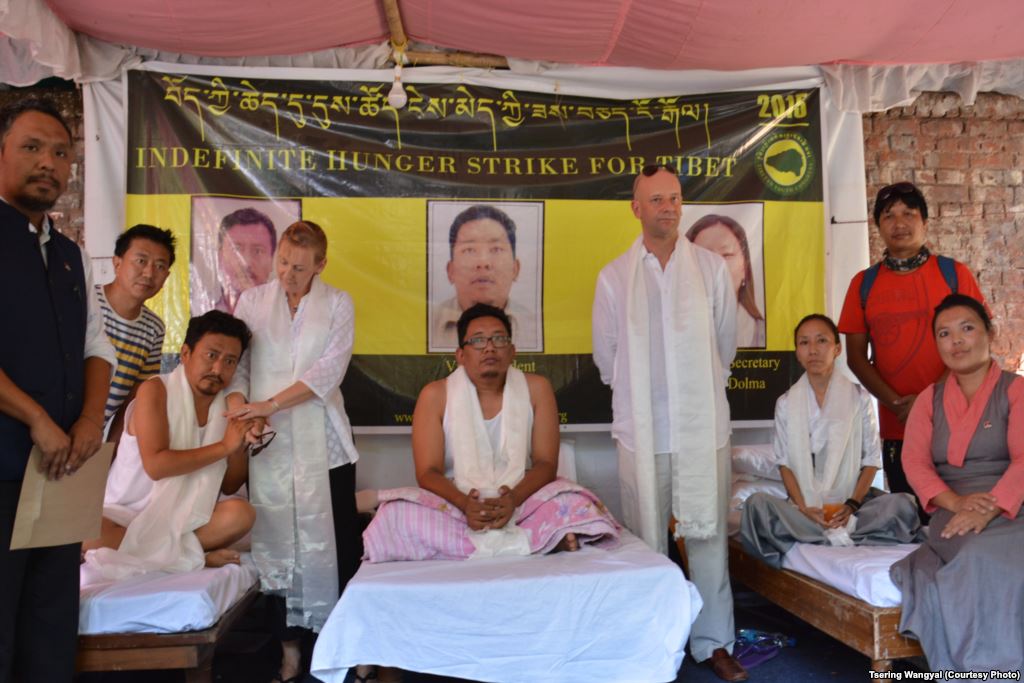
(TibetanReview.net, Oct14, 2015) – The Tibetan Youth Congress (TYC) has ended on Oct 12 an indefinite hunger-strike by three of its executive members on its 32nd day after being given a written assurance that their concerns will be addressed by the United Nations. The assurance was given by the UN Assistant Secretary General of the Office of the Human Rights Commissioner Mr Ivan Simonovic who requested an end to the hunger-strike, assuring the TYC that the voices of the Tibetan people will be heard.
Simonovic has explained that the UN Secretary-General Mr Ban Ki-moon had also expressed concerns about the health of the hunger strikers.
The letter was delivered by Mr Yuri Afanasiev, the UN Resident Coordinator and United Nations Development Programme (UNDP) Resident Representative in India.
TYC President Tenzing Jigme has called the UN assurance a “huge victory” for the Tibetan people. “The power of non-violent methods of resistance, and the fact that when we come together and fight for our country as one, we win, are evident from this victory,” he was quoted as saying.
The hunger-strikers were Vice-President Tamdin Hrichoe, Finance Secretary Mr Tenzin Wangchuk, and Information and International Relations Secretary Ms Tsewang Dolma. They began their hunger-strike at Jantar Mantar in the heart of India’s capital New Delhi on Sep 10. Tsewang Dolma was forcibly removed to hospital by Indian police on Sep 30 after her health became critical. She is now apparently back in health and was with the other two when the hunger-strike was called off.
The hunger-strikers had raised a five-point demand on the UN, which included the raising of the issue of Tibet in the UN General Assembly – which concluded recently in New York City – and in the UN Human Rights Council Session in Geneva. The UN was also urged to pressure China to address the demands of the more than 140 Tibetans who had carried out protest self-immolation since Feb 2009.
The TYC, headquartered at Dharamshala, India, is the largest grassroots Tibetan organization with regional chapters across Indian and a number of other countries. It campaigns for the restoration of Tibet’s independence from Chinese occupation rule. The exile Tibetan administration, on the other hand, seeks only a semblance of internal self-rule for an ethnically united Tibetan region under the communist party of China rule.


